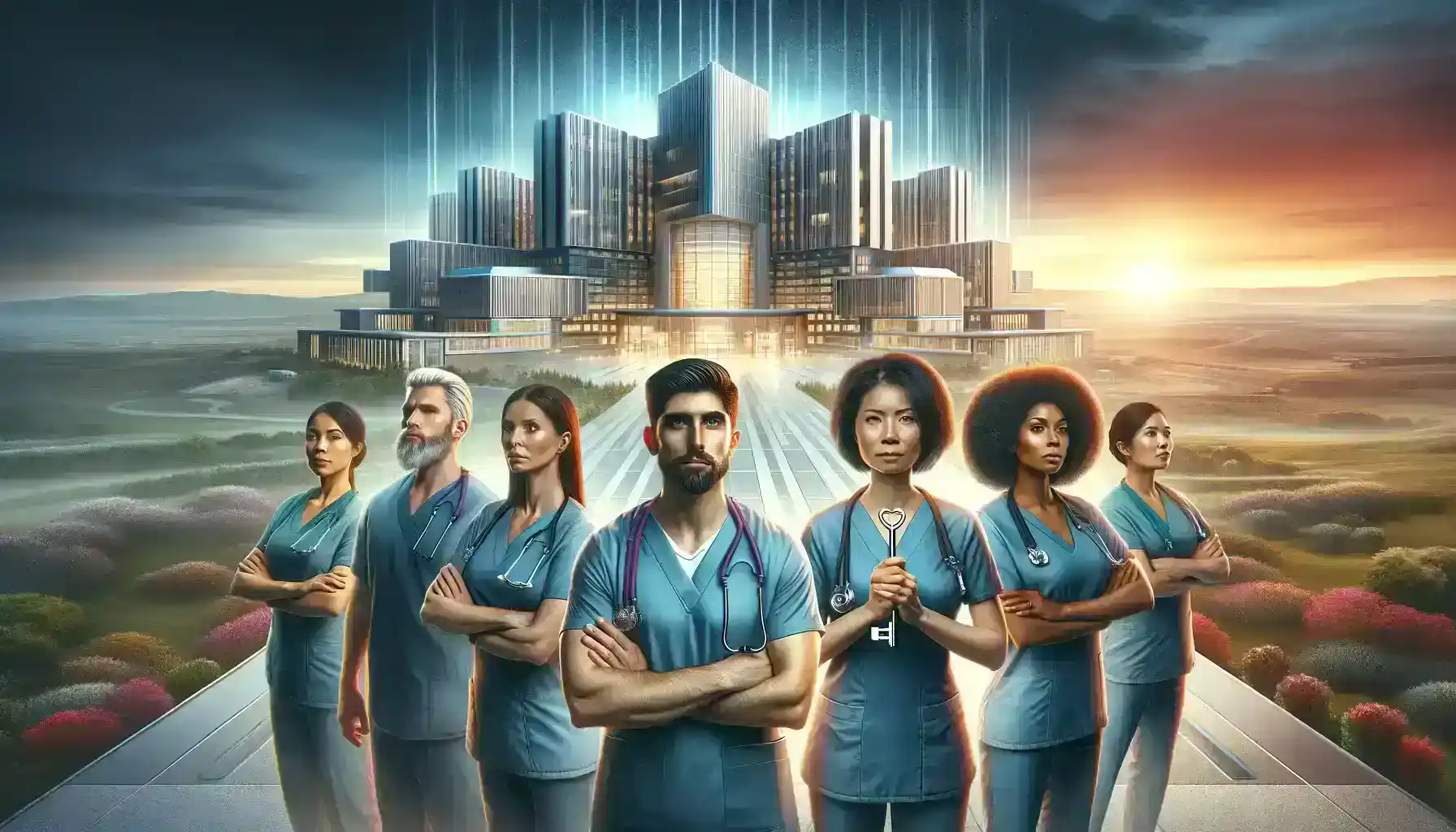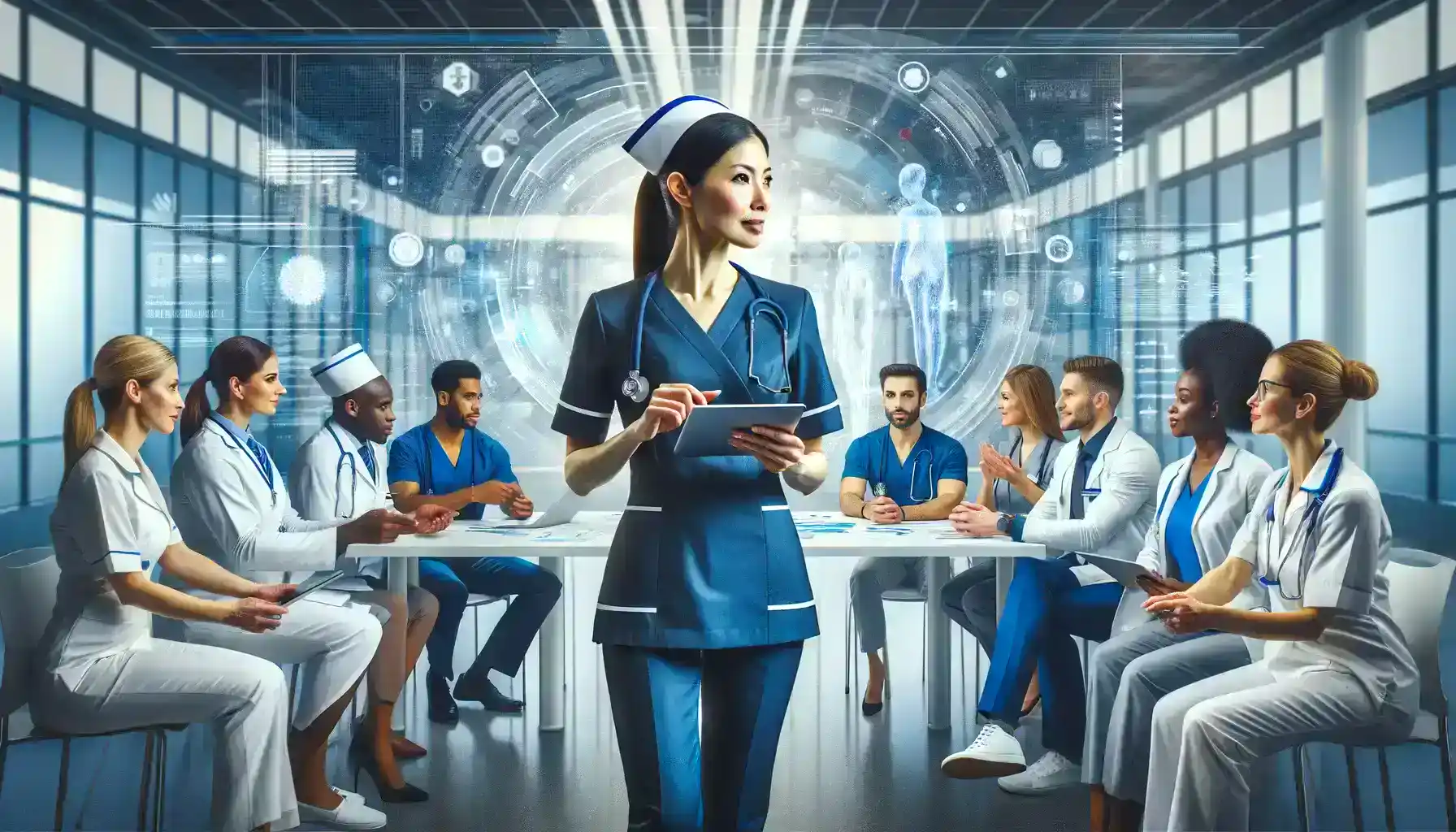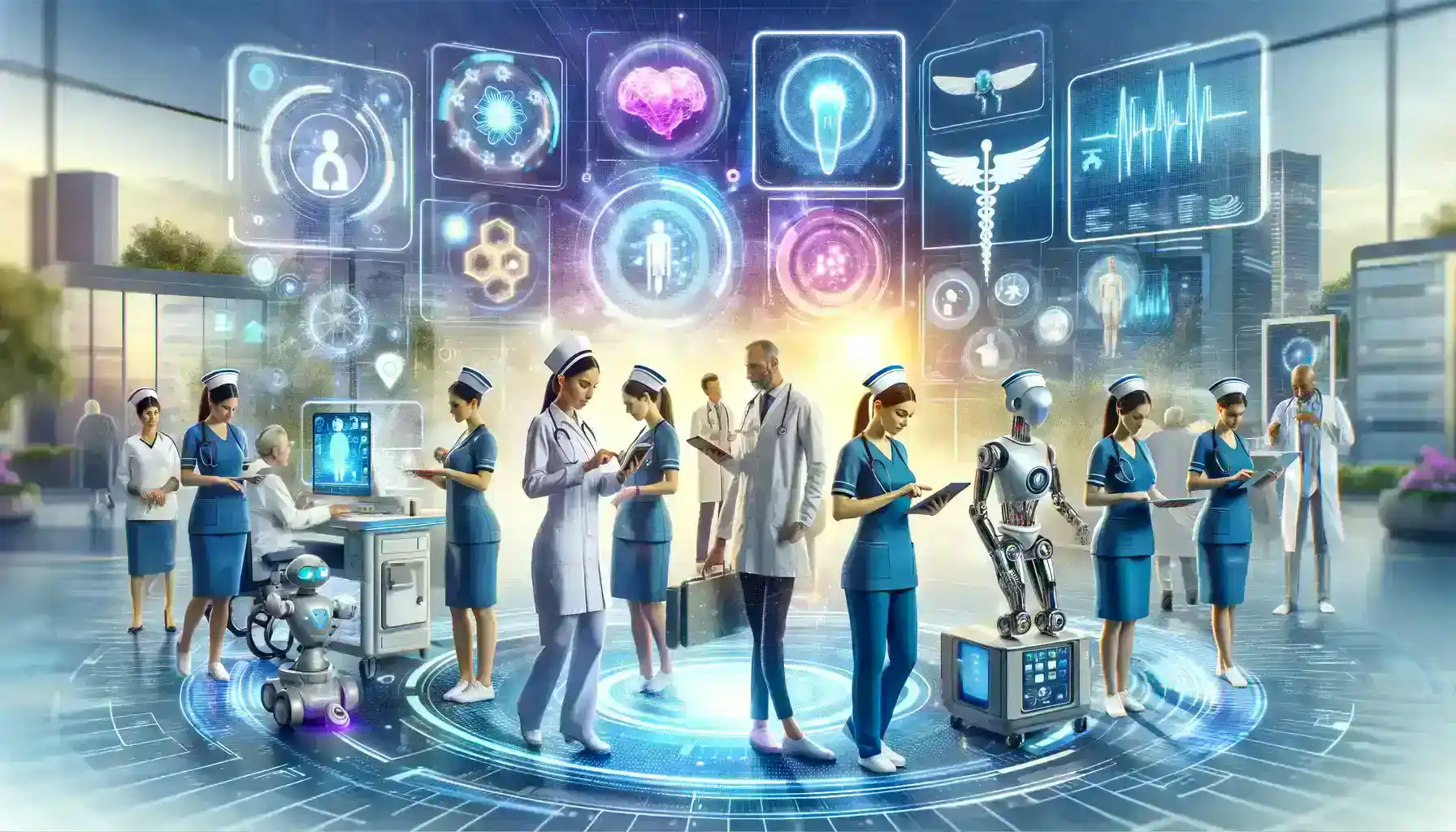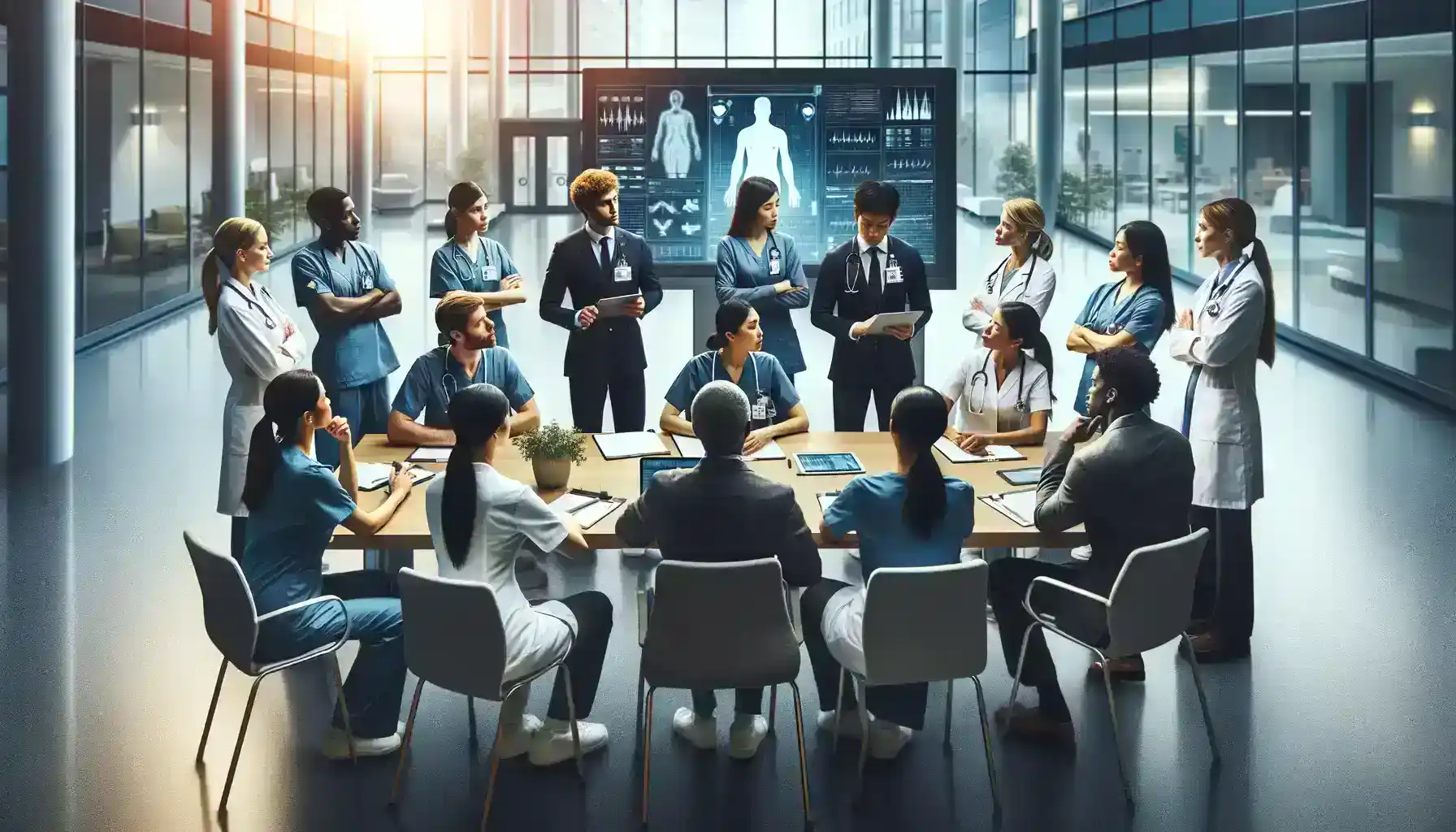Table of Contents
Modern nursing stands as a pivotal force driving change and innovation. The role of nurses has transcended traditional boundaries, making them indispensable in shaping the future of healthcare. This article explores how modern nursing unlocks its potential, paving the way for success in 21st-century healthcare.
Modern nursing is far removed from the stereotypical image of nurses as mere assistants to physicians. Today, nurses are central players in healthcare delivery, blending clinical expertise with empathy to provide holistic care. They are innovators, educators, and advocates, often serving as the primary point of contact for patients in the healthcare system.
One of the key aspects of modern nursing is its embrace of technology. From electronic health records (EHR) to telehealth services, nurses are at the forefront of integrating technology into patient care. This technological prowess not only enhances patient outcomes but also streamlines healthcare processes, making them more efficient.
The Evolution of Modern Nursing
Modern nursing began its journey with the foundational principles laid by Florence Nightingale. From these roots, the field has expanded exponentially. Today’s nurses are not only caregivers but also educators, leaders, and researchers. They work in diverse environments, from remote clinics to high-tech hospitals, tackling challenges from basic health education to complex clinical care.

The Role of Technology in Nursing
The integration of technology into modern nursing has had a profound impact, transforming how nurses deliver care and interact with patients.
Technology has revolutionized modern nursing. Electronic health records (EHRs), telemedicine, and mobile health apps are just the tip of the iceberg. Nurses today use sophisticated tools for patient monitoring, data analysis, and telehealth services, enhancing patient care and increasing the efficiency of healthcare delivery.
Technology in modern nursing has enhanced the efficiency of healthcare delivery, improved patient outcomes, and increased the scope of nursing practice. Nurses today are better equipped to handle complex healthcare challenges, thanks to these technological advancements.
Education and Continuous Learning
The education of nurses has evolved to meet the demands of modern healthcare. Nursing programs now include advanced coursework in pharmacology, biotechnology, and informatics. Continuous learning and professional development are essential, with many nurses pursuing specializations and advanced degrees.
With the rise of digital healthcare solutions, nurses are expected to be adept at using technology. This includes electronic health records (EHRs), telemedicine platforms, and various healthcare informatics tools. Such skills are crucial for effective patient care and data management.
Continuous learning is a cornerstone of modern nursing. The fast-paced evolution of medical knowledge and practices necessitates ongoing education. Nurses often engage in workshops, seminars, certifications, and recertification programs to stay current with the latest developments in healthcare.
Modern nursing education is a blend of advanced scientific knowledge, technological proficiency, continuous learning, specialization, interdisciplinary collaboration, and a holistic approach to patient care. This evolution mirrors the broader changes in the healthcare sector and equips nurses to be key contributors to the dynamic landscape of healthcare.
Nursing Leadership and Advocacy
Nurses are increasingly recognized as leaders in healthcare. They play a critical role in policy development, advocating for patient rights, and improving healthcare systems. Nursing leadership is vital in interdisciplinary teams, ensuring that the holistic needs of patients are met.
Modern nurses are stepping into leadership roles within healthcare teams and organizations. This shift recognizes the unique perspective and expertise nurses bring to healthcare management. They are involved in decision-making processes, playing a pivotal role in developing strategies for patient care and organizational improvement.
Modern nursing transcends the traditional boundaries of bedside care. It encompasses leadership and advocacy roles that are crucial for advancing healthcare systems. Nurses are now recognized as key players in not only delivering but also designing and advocating for better healthcare services. This shift is a testament to the evolving role of nurses as leaders and advocates in the ever-changing landscape of healthcare.
Nurses are increasingly involved in policy development, both within healthcare institutions and at the governmental level. Their firsthand experience in patient care makes their input invaluable in shaping policies that are realistic, effective, and patient-centered.

Challenges and Opportunities
With the significant strides made in the field, modern nursing faces several formidable challenges. These hurdles, while daunting, also present unique opportunities for growth and innovation in nursing education, practice, and policy.
Modern nursing remains a dynamic and essential force in 21st-century healthcare. Its ability to innovate, advocate, and lead change ensures that it will continue to play a critical role in shaping the future of healthcare.
1. Staff Shortages
One of the most pressing challenges in modern nursing is the persistent shortage of nursing staff. This issue is compounded by an aging population requiring more intensive healthcare services and a concurrent aging workforce in nursing. The shortage of nurses leads to increased workloads, which can affect the quality of patient care and nurse satisfaction.
Opportunity: This challenge presents an opportunity to reevaluate and improve nursing education and recruitment strategies. Expanding and diversifying the nursing workforce is essential. Initiatives such as scholarships, accelerated programs, and campaigns that highlight the diversity and impact of nursing can attract more individuals to the profession.
Robotic Process Automation can automate routine administrative tasks like scheduling, billing, and updating patient records, freeing up nurses to focus on direct patient care.
2. Evolving Healthcare Needs
The healthcare landscape is rapidly changing with advancements in technology, shifts in patient demographics, and the emergence of new diseases. Nurses must continuously update their knowledge and skills to provide the best possible care.
Opportunity: These evolving needs highlight the importance of continuous learning and professional development in nursing. Emphasizing lifelong learning and offering ongoing training and specialization opportunities can keep nursing practice aligned with current healthcare trends.
AI in Nursing Education offers personalized learning experiences, simulates clinical scenarios, and provides virtual training environments, enhancing the training and skills of nursing students.
3. Technological Advancements
While technology offers numerous benefits in healthcare, its rapid advancement also poses a challenge. Keeping up with the latest technological tools and integrating them into nursing practice can be daunting for some nurses.
Opportunity: This challenge underscores the need for incorporating technology training into nursing education and ongoing professional development. Encouraging a culture of digital literacy in healthcare settings can empower nurses to use technology effectively.
NLP is used to analyze clinical notes, transcribe patient interactions, and extract meaningful information from unstructured data, aiding nurses in patient assessment and care planning.

4. Policy and Leadership Roles
Modern nursing is often underrepresented in healthcare policy-making and leadership roles. Nurses, despite their critical role in healthcare delivery, may lack the representation needed to influence healthcare policies significantly.
Opportunity: Promoting leadership skills and policy involvement in nursing education can address this gap. Encouraging nurses to participate in policy discussions, leadership training programs, and decision-making processes can enhance their influence in shaping effective healthcare policies.
Predictive Analytics analyzes large datasets to predict patient outcomes, potential complications, and hospital readmission risks. This helps nurses in planning care strategies and allocating resources more effectively.
5. Burnout and Work-Related Stress
Burnout is a significant issue in modern nursing, characterized by emotional exhaustion, depersonalization, and a reduced sense of personal accomplishment. Factors contributing to burnout include long working hours, emotional strain, and high-stress environments.
Opportunity: Addressing nurse burnout requires systemic changes. Implementing policies that promote work-life balance, offering mental health support, and fostering a supportive work environment are crucial.
Chatbots and Virtual Health Assistants are AI-driven tools that can provide patients with health information, answer common queries, and even assist in symptom assessment, reducing the workload on nursing staff.

Conclusion
Modern nursing is at the forefront of transforming healthcare in the 21st century. Its evolution, embracing technology, advanced education, and expanded roles, positions nursing not just as a supporting field in healthcare but as a driving force for innovation and success. As healthcare continues to evolve, the role of nursing, adapting and growing to meet the ever-changing needs of society.
Modern nursing faces several challenges, and each of these issues also presents an opportunity to enhance the profession and improve healthcare delivery. By addressing these challenges head-on, nursing can continue to grow and evolve, remaining a vital and dynamic force in 21st-century healthcare.
This field has transcended its traditional boundaries, integrating advanced technology, pursuing higher levels of education, and assuming expanded roles within the healthcare system. Today, modern nursing is not just a supporting element in healthcare; it’s a primary driver of innovation and a cornerstone of successful healthcare delivery.
Each of these challenges also presents a unique opportunity for growth and improvement. By tackling these issues proactively, the nursing profession can continue to evolve, enhancing its contribution to healthcare delivery and policy.
Modern nursing remains a dynamic and essential force in 21st-century healthcare. Its ability to innovate, advocate, and lead change ensures that it will continue to play a critical role in shaping the future of healthcare. The ongoing evolution of nursing is not only necessary for its growth but is also imperative for the advancement and success of the broader healthcare sector.